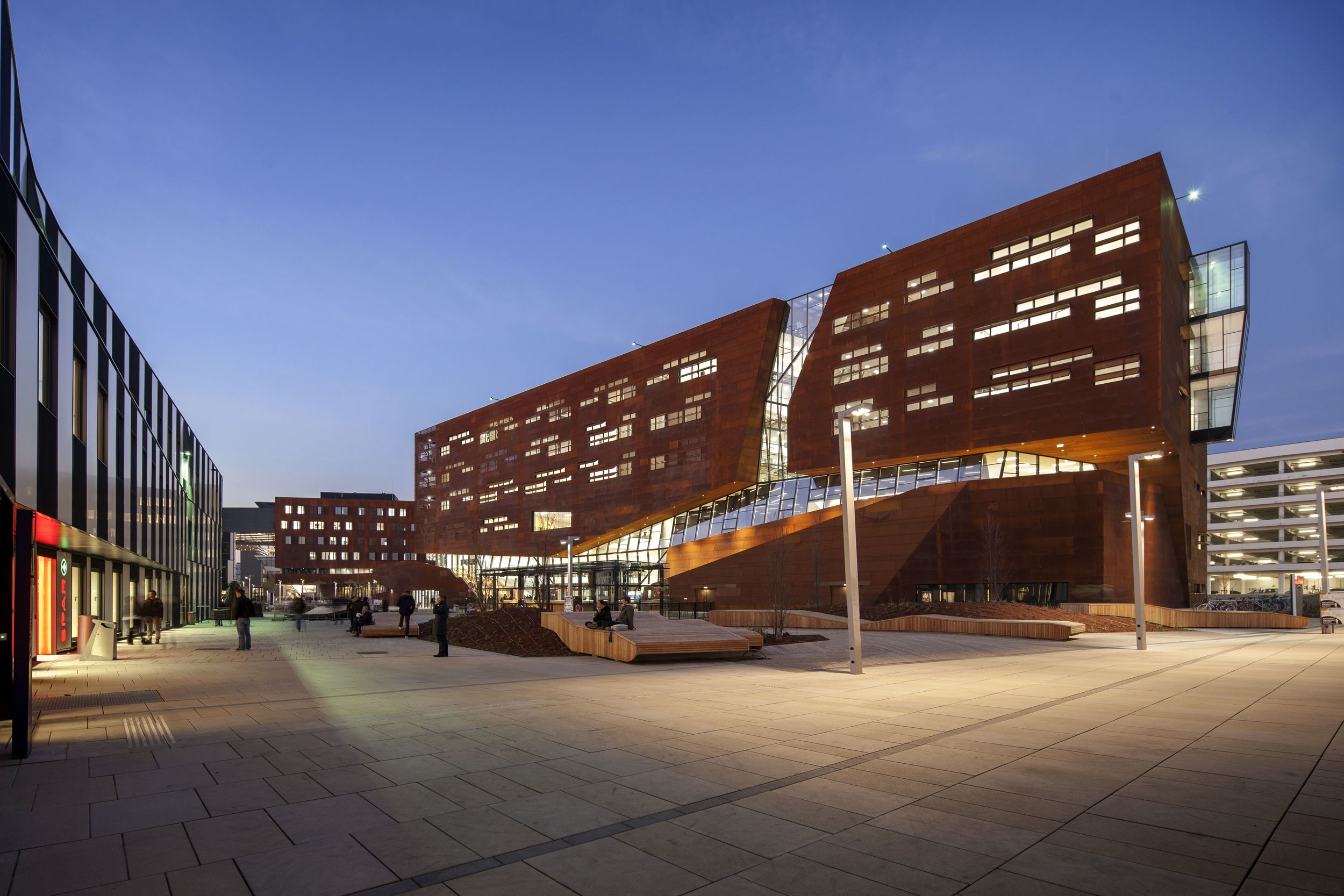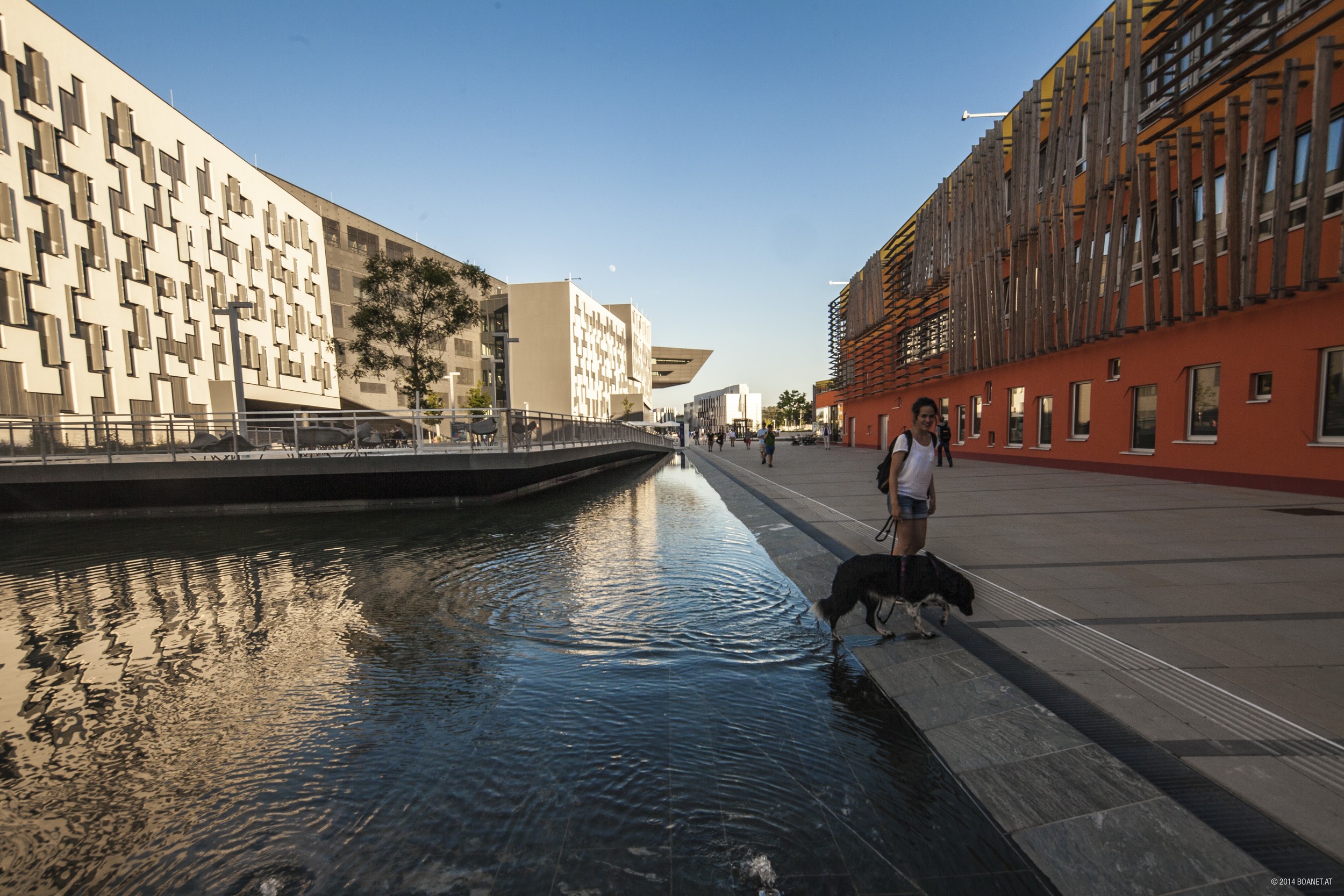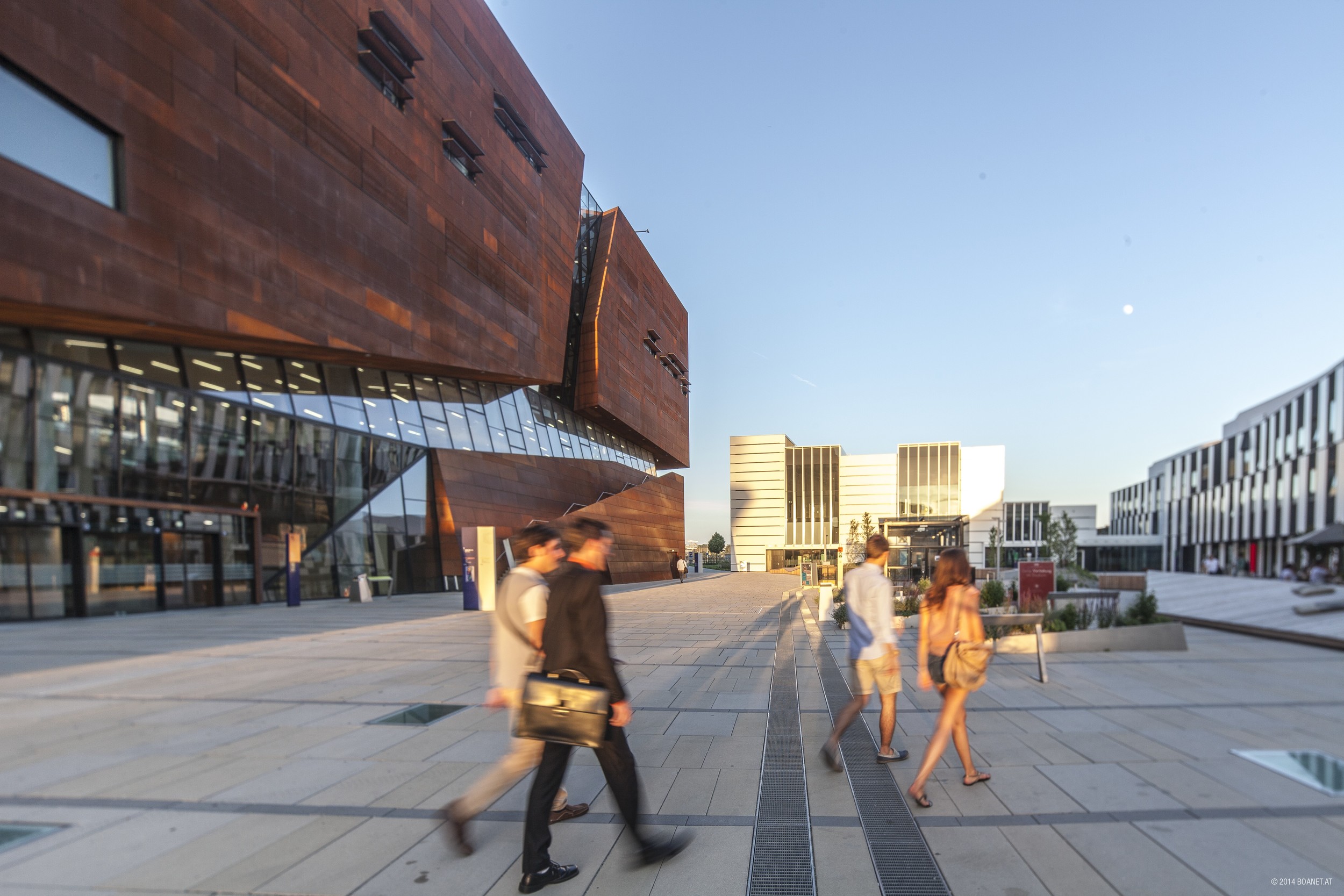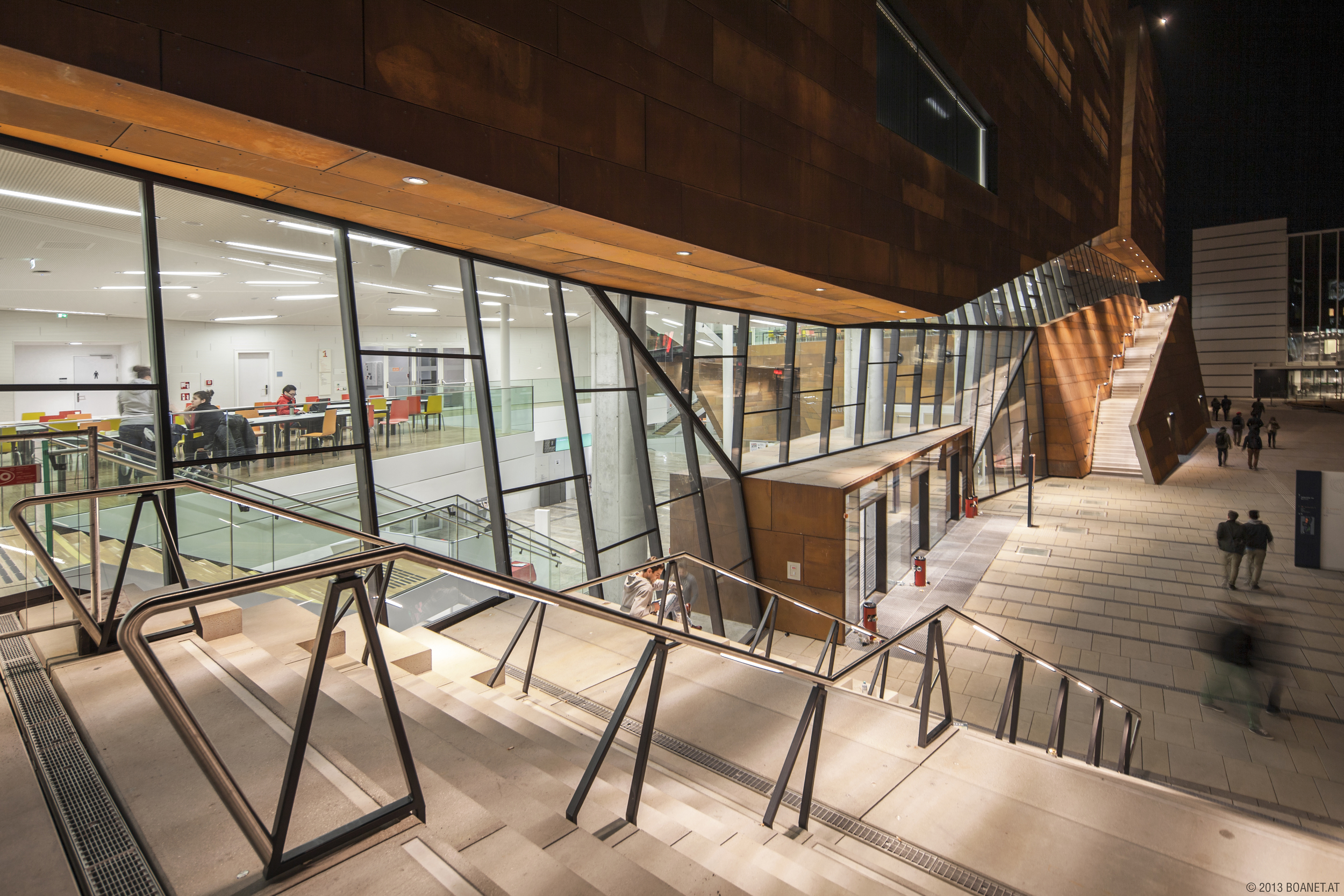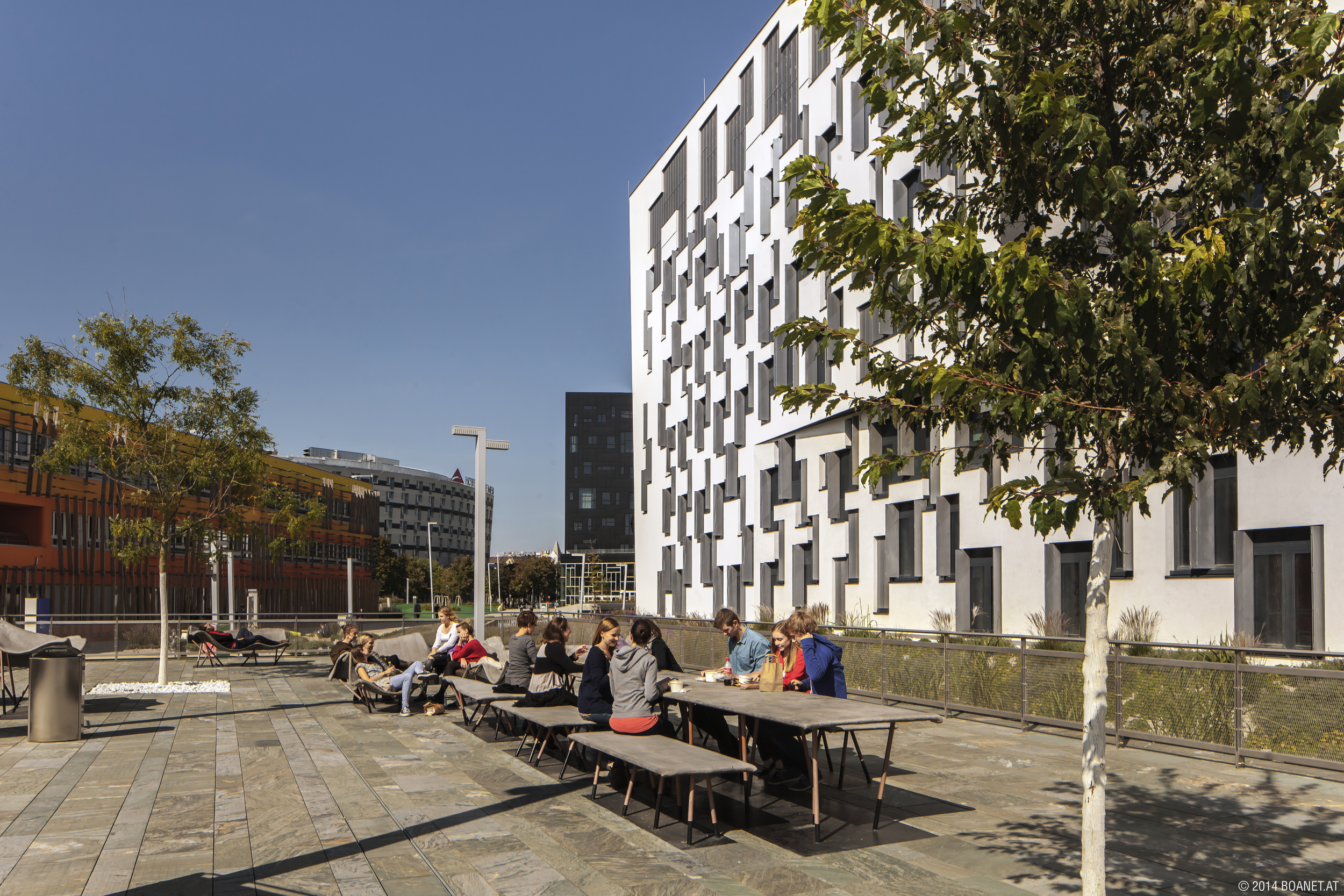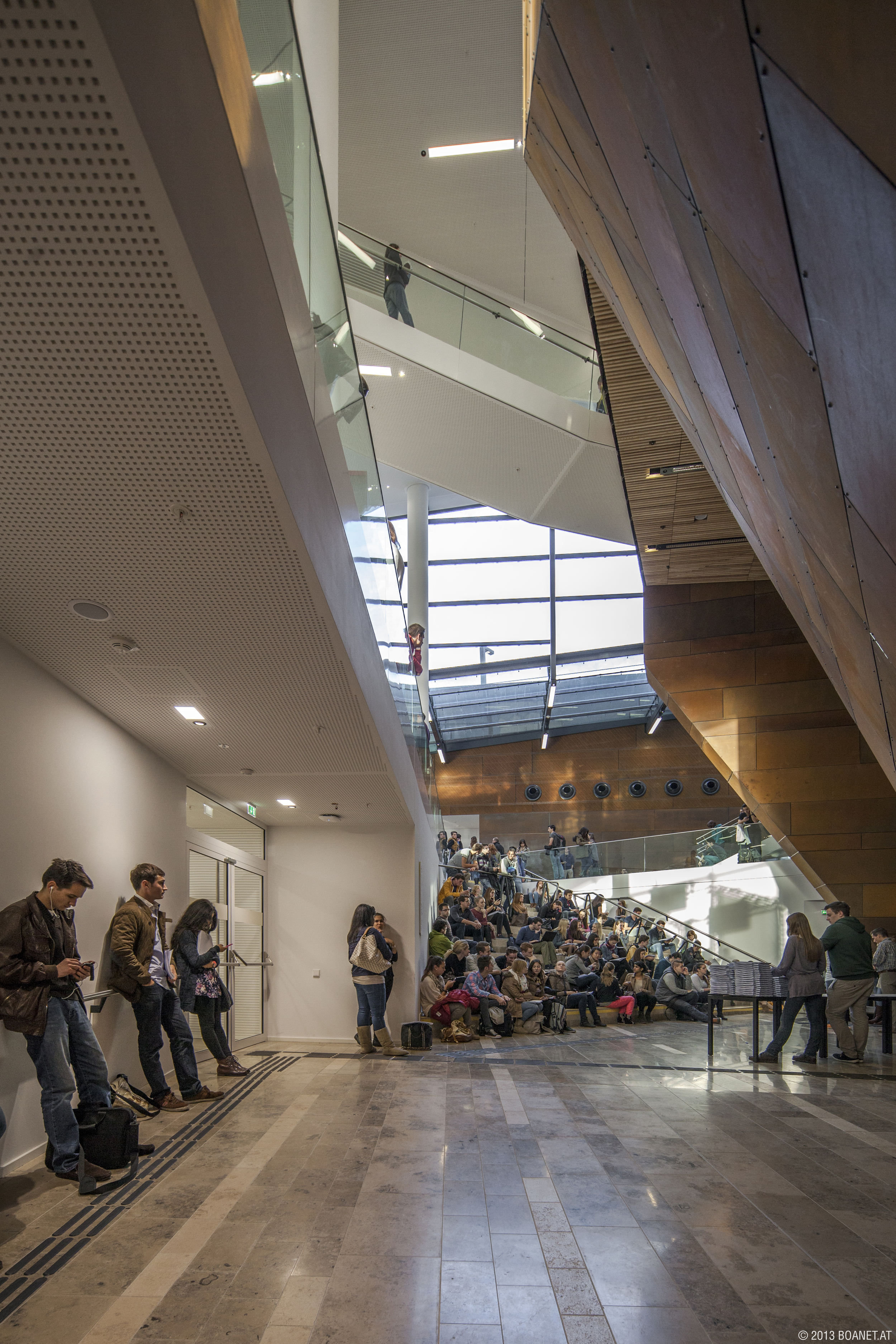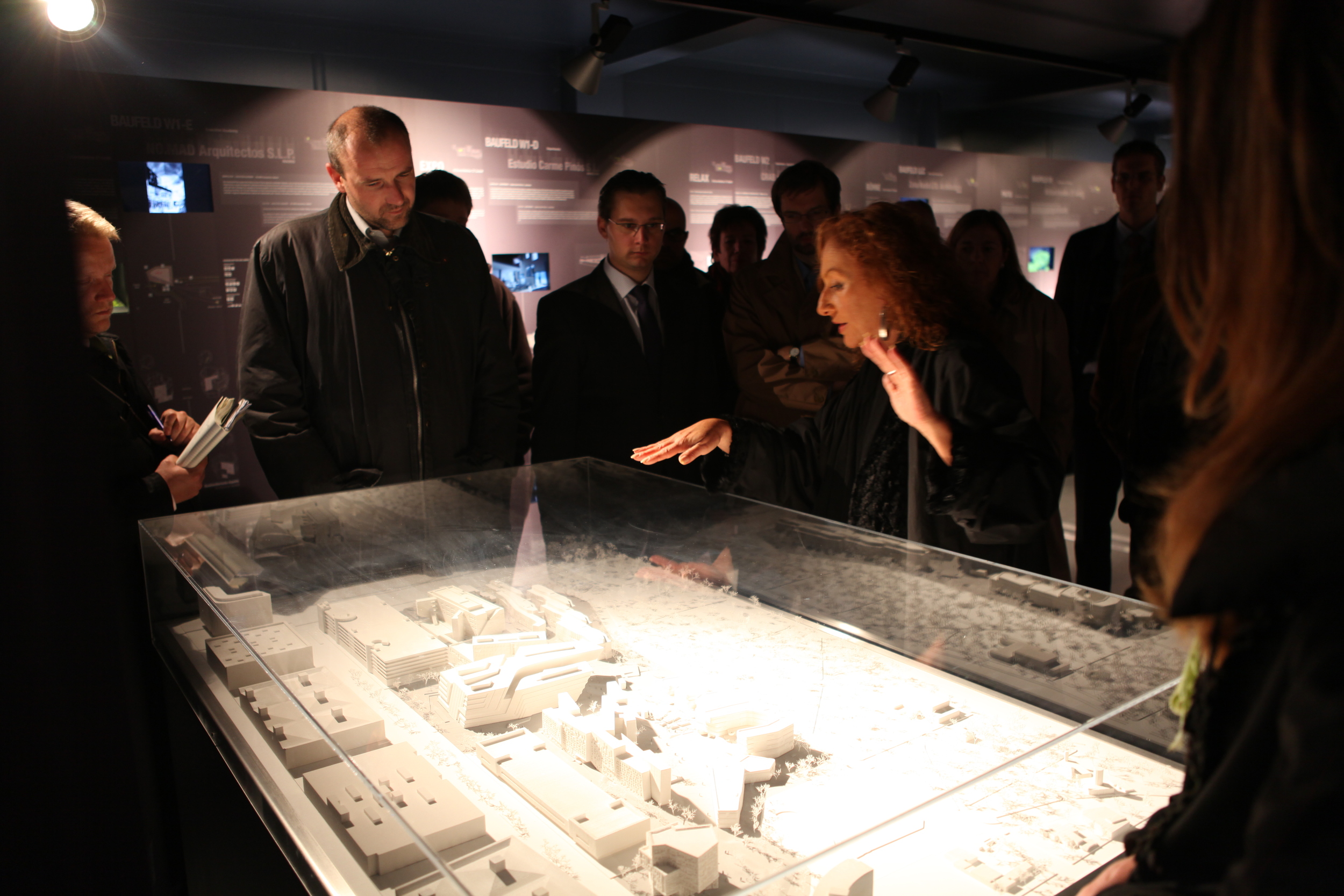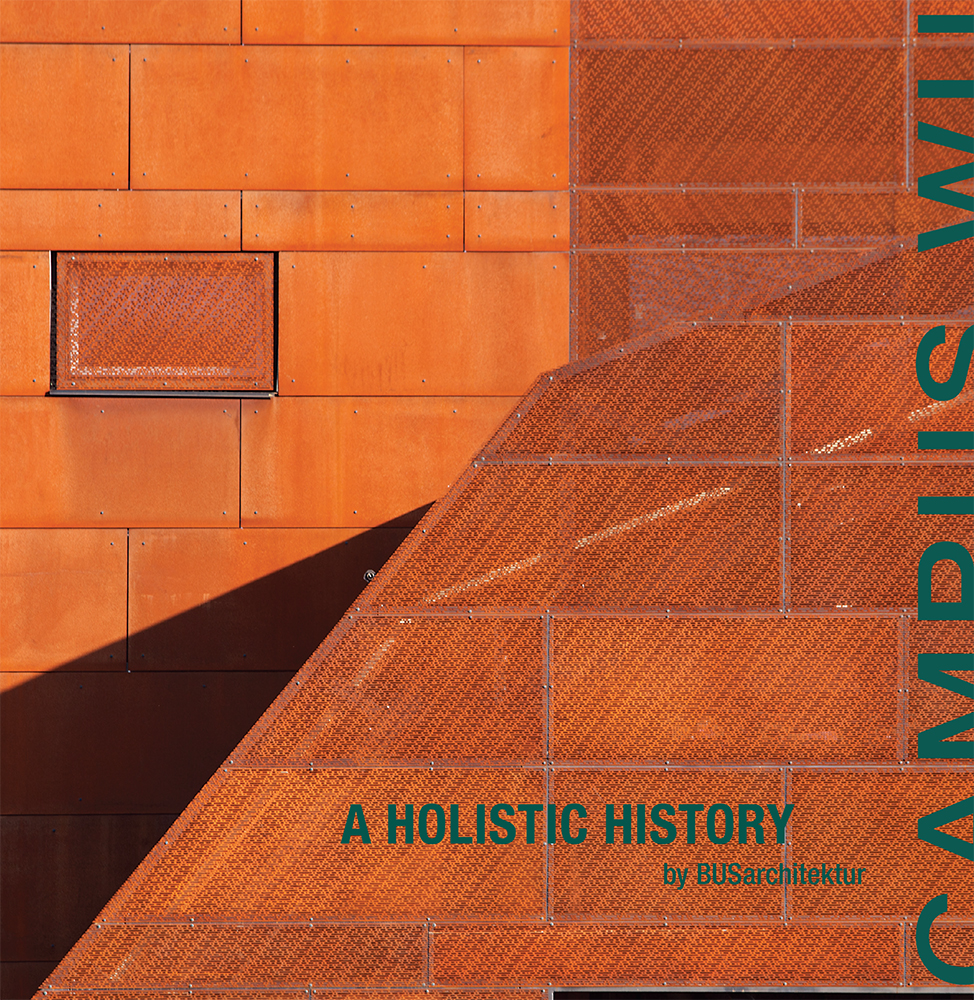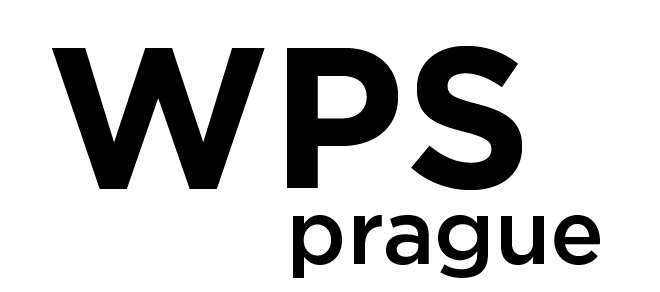Laura P. Spinadel and team at WU Campus, Vienna, photo: © BOAnet.at
Profession: Architect, Urban Designer, Filmmaker, Multimedia Communicator; Editor
Organization: BUSarchitektur & BOA büro für offensive aleatorik
Position within organization: CEO & Creative Director
Active years in profession: 32
City: Vienna
Significant projects: Master planning Campus WU, Vienna 2013, Landscape Campus WU, Vienna 2013, Hoffmann takes a walk, Pukesdorf 2006, Compact City, Vienna 2002
Bio: Studied architecture in Buenos Aires (Gold Medal 1982). Structure of the Directorate for Foreign Relations of the University of Buenos Aires. Employees at the Institute for Urban Design at the University of Applied Arts, visiting professor in Spain, Brazil, Mexico, USA, Italy, Colombia and Argentina.
Awards: Architecture Award City of Vienna 2015, International CICA Award Urban Planning 2015, Award International Architecture Biennial Buenos Aires BA15 2015, Nomination Mies van der Rohe 2015, Award Bauherrenanerkennungspreis BHP´14 - 2014, Golden Ring of Honor from the Business and Economics University Vienna - 2014, Ernst A. Plischke Award - 2014, Nomination ArchDaily Award – 2014, Nomination J.C. Nichols Prize for Visionaries in Urban Development - 2014, Nomination Putzpreis European Award AIT – 2006, The best of Europe AIT – Office - 2004, Nomination Austrian Architecture Prize Industry and Commerce – Ministry of Economy - 2004, Otto Wagner Urban Design Award – Az W / PSK - 1998, Outstanding Artist Award for Experimental Trends in Architecture – BMUK – 1989
Interview by: Milota Sidorova
Date: 21.8.2015
First I asked Laura P. Spinadel to answer few questions about women in architecture and gender equality for my study, which she agreed to do by email. The responses were what I had expected from my research, yet we both felt we had to meet in order to delve deeper into the topic. The moment I found myself in a spacious garden, tucked away in a quite grey 18th district of Vienna, I realized she is an equally hard to pin down combination of free spirit, philosopher, workaholic, great storyteller and a businesswoman. Free flowing and sharp. Making her point by not being linear. I realize this will be a very personal and philosophical talk. We let it happen.
I decided to publish this interview as an extra feature to the research on women architects.
At what point in your career did you become successful, with work flowing in and less need to promote yourself as much?
When we won the award Experimental Trends[1] in Architecture, me and my partner (28 and 30 at the time) were invited to give a lecture in a really aristocratic venue in Spain. We each got 1000 dollars. After the lecture we felt we were about to enter into this 'star system'. But we couldn’t sleep for a lot of nights and we had to talk.
We thought it wasn't possible to have this publicity and recognition without the content. We had to build something before we went to public for a second time. We agreed to not to give a lecture for 10 years and then we would see what happened to our work. Architecture is not only about ideas, books and exhibitions. Architecture has a social component, we needed to do something for the environment, society, old people. We couldn’t have done it if we had only spoken to architects and taken part in intellectual masturbation.
For 10 years we put our heads down and worked. That period was really interesting, because when you don't have to attend all these exhibitions and lectures, you have a lot of time to feed your dreams, hone your knowledge, and visions. It was really important for me to decide that I don't need that sex furry when I have something to say or show[l1] .
You seem to be have a close relationship with landscape architects...
The people who discovered that WU Campus was about history were landscape architects. Nowadays architects tend to think about objects. Urban planners think in terms of parametrical constructions. You have of course, a lot of business problems to solve - actually most of it. They believe if they have parametrical control they have the world. In Latin America or around the world landscape architects are trying to pick up on the social aspect in architecture. They are trying to do what architects have forgotten. To work with municipalities and to create landscape ‘rights’. It is something that is becoming the law .
How many competitions do you do for the studio?
In the past we had to do 10 to win 1. Today it is 30 to 1. It is not feasible so we don't do it too often. Up until now we have done between 10-15 competitions per year. One costs between 15-30,000 Euros. That's a lot of money. However, competitions are very good, because women like me would not have a chance of doing WU Campus, a 500 million euro project, without them.
What was the story?
In competitions you have to master a lot of work. On the other hand you have a jury that doesn't know the site and has 8 hours to go through 80 projects. Most of the time they don't know what they want, but they know what they don't want. They rule out experiments, innovations. That is not a good thing, but it is what happens. When you look at the results, they talk about innovations, but they don't choose them.
I can't think of another project of such size and complexity designed by a woman.
Randomness is a very interesting thing. I was a student of a Waldorf school. The competition was anonymous. From the final five projects, they selected three. In the end they invited us to give a presentation because the jury couldn't decide on the best one. Three projects. Two men and me. 95 percent of the jury were men. The rector of WU University told me that when I gave my presentation I said something about being a Waldorf student and that was the reason it happened. He was a Waldorf fellow. It was clear.
It seems that Waldorf thinking was a catalyst behind this enormous project. Can you describe how it influenced you?
I couldn't read or write until I was 10 or 11. We were just painting, dancing, singing, dreaming. It means you have a lot of time to build up your own individual creativity. The second part is to construct the skeleton of an individual who is creative, happy and wants to change the world. Of course it is a problem being in a world where a lot of doors are closed. But it is possible to find a way to open the doors.
WU Campus is one of few places in Vienna where I intuitively go back to. The energy flows in there, you feel the openness and all of the iconic buildings which are usually begging for attention somehow happily coexist next to each other.
The people who wanted us there were not the architects or the city. They were businessmen, researchers, part of the male economic world, professors. They spent a lot of money on master planning because they knew it was important to have a Mastermind to develop this kind of project. They gave me a lot of opportunities to think about this place as a place for freedom, content.
Can you describe WU Campus through this set of values?
We created a space for freedom, choices and different ways of thinking (for individuals, and small, medium sized, and big groups). I liked the surprises I found every time when I went there. I discovered more and more options that I didn’t know were possible. It is an open system, during the day, night, summer, winter. We had to create a big urban plan, 70,000 m2, a space for 30,000 university people, in addition to all the people from the surrounding areas, all of the visitors. We wanted them to be curious. If we didn't arrive at the point where everyone had a relationship with the space it would have been a problem. Plus we had to build it in the city where children don't play on the streets and such a simple thing it leaving our mindset .
You are one of few women running a studio on your own. How would you describe yourself as a leader?
My experience as a woman after all these years is a hard one. Society doesn't want to work with women. After my partner died I took a lot of time to focus on spiritual matters because the experience was very tough. I decided to spend a lot of time in spiritual research. At first it was personal, but as time passed I focused on energy as a concept. Everybody knows feng shui, but few people know about geomancy or old schools of thought dealing with energy within our own cultures. I think I have been working with my concepts within this philosophy over the past years. I have developed my intuition. I think the most important thing is to be free, yet to consciously know why I am doing what I am doing. We build, using materials. We build voids, we create spaces, but we don't know what happens in these spaces, because we don't really want to learn about it. Instead we bring in more and more technology, electricity. We have to know how to live with energies between us, between materials, between everything.
That defines you as a very empathetic, intuitive leader who possibly invests a lot into knowing 'the material' including your employees whom I guess are part of your family.
Yes.
Where is the hard side? Empathy sometimes brings a burden of too much empathy and indecisiveness.
Of course, it was a big problem at WU Campus. I had to decide on a lot of things, work very hard with emotions, egos, power struggles. You have to be constantly focusing on the internal and external. The rules are constantly changing and you have to know the answer to every question every minute. You have to have your own spiritual aura and protection to do this job.
I am very hard. Sometimes too hard. I learned to be very, very fast. I knew that as a woman I had to be many steps ahead of the group. And I am a player. When I have to work with huge groups of men I know when to speak and how to speak.
How do you think about your team?
I choose people personally. Every day I get 30-40 portfolios. Having a fast filter is important, I can detect students who are not developing sensibility, a sense of human scale, materials, simple rules of architecture. A lot of professors think university should teach you to think about architecture and that students will learn architecture in studios. I think that is very, very stupid. Students have to learn much earlier, then we can grow their experience in studios. I like people with qualities. It is not important what quality. Sometimes it is art, sometimes it is technical side or a social component.
They should draw on these qualities, This is the function of schools. When I find people like this, first I exchange a lot of emails to clarify conditions (money, work, etc.) and only then do I invite him or her for an interview. When I sit down with people I like to have an open interchange, action, connection.
You select special talents, resilient ones.
... and those with different qualities. It is good to have these sharp edges when ideas evolve. I support them once they are 'in house'.
How many women do you have in your studio?
I never check to see if they are men or women when I am looking for a person. I have approximately 60:40 percent men : women.
Has any (woman) architect inspired you?
No. I don't like to have teachers, maestros, mentors. When I discover something that inspires me I only learn about the person afterwards. When I am in different cities, I go around without an architectural guide, like a gypsy.
Open ending….?
I don’t want to be successful as the system defines it. I want to feel alive and I like to speak with journalists, students or people in the planet because we need a critical mass of free thinkers who believe we can change the world. That we can do something to be happier, to bring back hope. I think change will come from the bottom up, but we need to build many examples. I am talking about about Holistic Villages where people can live with values, the environment, the sun. We have to do it because most of today’s politicians, teachers, and authors live in a comfort zone.
[1] Outstanding Artist Award for Experimental Trends in Architecture – BMUK – 1989, Master plan of Buenos Aires
